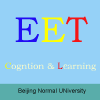-
Keller's ARCS Model-Satisfaction
普通类 -
- 支持
- 批判
- 提问
- 解释
- 补充
- 删除
-
-
Introduction
LEARNER SATISFACTION is a key component of motivation according to Keller's ARCS model (1988). If learners feel good about learning results, they will be motivated to learn. What can a designer do to ensure learner satisfaction? Keller suggests three main strategies to promote satisfaction:
-
Natural Consequences
Provide the learner with realistic or authentic situations which require the application of the newly-learned skill. The more immediate the opportunity to use the new skill, the better.
Examples: case studies, role plays, simulations, games.
Simulators let students apply their
newly-acquired skills immediately in
a semi-authentic situation.
-
Positive Consequences
Provide rewards or feedback that will encourage the learner to continue target behavior. Motivation feedback can vary from positive comments to extrinsic rewards.
.jpg)
Extrinsic rewards can be as varied as prizes, parties, travel awards, even cash.
Cautions:-
Don't annoy the learner by over-rewarding simple behavior.
- Don't overuse extrinsic rewards as they may overshadow instruction.
- Don't make the negative consequences too entertaining. You don't want the learner to purposely choose the wrong answer.
-
Equity
Design and maintain consequences and feedback that are consistent and fair. Make expectations clear so as not to disappoint or discourage learners.

Feedback needs to be balanced and
fair to keep students motivated to continue learning.
-
Conclusion
Satisfied learners are motivated to continue learning because they see value in what they are doing. To keep learners satisfied, instruction should be designed to allow them to use their newly-learned skills as soon as possible in as authentic a setting as possible. Rewards and feedback should be provided in a timely fashion and should be appropriate to the level of difficulty of the task.
-
For more information
Keller's ARCS Model-Attention
Keller's ARCS Model -Relevance
Keller's ARCS Model -Confidence-
Auhtor
Lisa Alizadeh
Graduate Student
San Diego State University -
-
- 标签:
- feedback
- motivated
- continue
- learners
- learner
- students
- model
- arcs
- satisfaction
- rewards
- keller
-
加入的知识群:



学习元评论 (0条)
聪明如你,不妨在这 发表你的看法与心得 ~